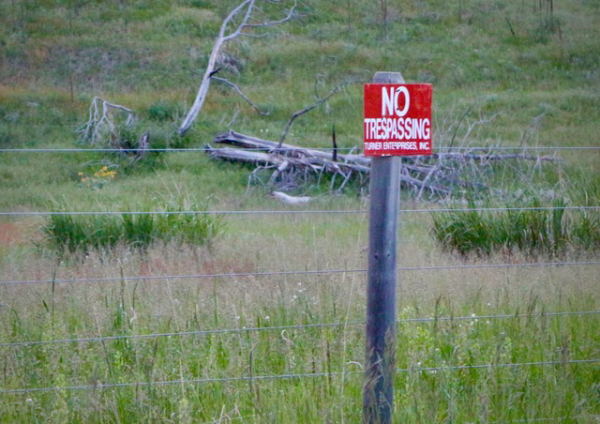Michigan’s Castle Doctrine Law
So, here we go … MCL 780.951 (Public Act 311 of 2006) states:
“(1) Except as provided in subsection (2), it is a rebuttable presumption in a civil or criminal case that an individual who uses deadly force or force other than deadly force under section 2 of the self-defense act has an honest and reasonable belief that imminent death of, sexual assault of, or great bodily harm to himself or herself or another individual will occur if both of the following apply:
(a) The individual against whom deadly force or force other than deadly force is used is in the process of breaking and entering a dwelling or business premises or committing home invasion or has broken and entered a dwelling or business premises or committed home invasion and is still present in the dwelling or business premises, or is unlawfully attempting to remove another individual from a dwelling, business premises, or occupied vehicle against his or her will.
(b) The individual using deadly force or force other than deadly force honestly and reasonably believes that the individual is engaging in conduct described in subdivision (a).”
The basic rule on use of force in self-defense is that the force must be proportional to the threat.
Essentially, deadly force is only authorized in self-defense when preventing: death, great bodily harm that could lead to death, or rape (known modernly in Michigan as sexual assault.) The individual using deadly force in legitimate self defense must have an actual belief that he / or she is preventing one of those three things, and that belief has to be reasonable under all the circumstances. In other words, a jury would have to agree that, if they were in the same situation, they would share that same belief that great bodily harm, death, or sexual assault were about to occur.
Prior to enactment of this law, which became effective as of October 1, 2006, there was a possibility that a homeowner who used deadly force in defense would have found himself charged criminally or sued by the intruder, or the intruder’s family. This is because deadly force is NEVER appropriate when defending property. In other words, it could have been argued that the intruder perhaps meant only to commit a property crime and, therefore, deadly force was not proportionate. This is still possible under the current law. An individual who breaks in to one of the places listed above may not present a deadly threat and it is possible that in some circumstances, use of deadly force may still be considered disproportionate. However, the presumption is that someone who breaks into a home or business, or who attempts to drag a motorist from a car, does mean to do something that calls for deadly force in self defense.
This statute gives the benefit of the doubt to the home or business owner or motorist. However, it is not a blanket license to kill. Remember that a firearm is always considered deadly force so use your guns wisely, judiciously and effectively. The presumption raised by this statutes is rebuttable. Meaning, that a bloodthirsty or negligent individual who shoots at someone who is found to have been clearly not a threat, may still run afoul of the law.
As a practical matter, I always recommend caution and shooting only as a last resort. However, as a result of this statute, which was introduced and supported by members of your MCRGO leadership, if someone kicks your front door down at 3:00 a.m., you no longer have to hesitate before defending yourself and your family. This bill essentially codified common sense in that most people know that someone who would do such a thing is probably a dangerous person intent on harming others. The burden of proof is now on the intruder to prove that there is no way that the homeowner, business owner, or motorist could have felt seriously threatened.
The presumption DOES NOT APPLY if:
“(a) The individual against whom deadly force or force other than deadly force is used, including an owner, lessee, or titleholder, has the legal right to be in the dwelling, business premises, or vehicle and there is not an injunction for protection from domestic violence or a written pretrial supervision order, a probation order, or a parole order of no contact against that person.
(b) The individual removed or being removed from the dwelling, business premises, or occupied vehicle is a child or grandchild of, or is otherwise in the lawful custody of or under the lawful guardianship of, the individual against whom deadly force or force other than deadly force is used.
(c) The individual who uses deadly force or force other than deadly force is engaged in the commission of a crime or is using the dwelling, business premises, or occupied vehicle to further the commission of a crime.
(d) The individual against whom deadly force or force other than deadly force is used is a peace officer who has entered or is attempting to enter a dwelling, business premises, or vehicle in the performance of his or her official duties in accordance with applicable law.
(e) The individual against whom deadly force or force other than deadly force is used is the spouse or former spouse of the individual using deadly force or force other than deadly force, an individual with whom the individual using deadly force or other than deadly force has or had a dating relationship, an individual with whom the individual using deadly force or other than deadly force has had a child in common, or a resident or former resident of his or her household, and the individual using deadly force or other than deadly force has a prior history of domestic violence as the aggressor.”
So, the presumption only applies to those with “clean hands.” The rule is meant to protect innocent citizens who are forced to defend themselves.
On a related practical note, the tacticians recommend that all of us who are armed also have a good, bright flashlight so that we can avoid the tragic result of shooting a loved one by mistake. Chance favors the prepared mind.
Steve Dulan (www.StevenWDulan.com) is a member of the Board of Directors of the MCRGO and the MCRGO Foundation, and a member of the Board of Trustees of the MCRGO Foundation. He is an attorney in private practice in East Lansing and Adjunct Professor of firearms law at The Thomas M. Cooley Law School. as well as an Endowment Member of the NRA.
Each of these Bills provide rather specific circumstances and protections which, taken as a whole, provide strong protection for a person who is forced to defend himself from criminal attack (which here means grievous bodily injury, rape, or death).
PA 311 provides a “rebuttable presumption” in a civil or criminal case that a person who defends himself believes that criminal attack is threatened if (1) he is in a dwelling or business, or (2) the criminal is attempting to remove someone from a dwelling, business, or vehicle. This does not apply if the alleged criminal has a legal right to be in the dwelling or business, or if the person defending himself is committing a crime, or if the person entering is a law enforcement officer in the course of his duties.
PA 310 states that a prosecutor may still charge a person who has defended himself if the prosecutor can present to the court evidence that the person did not believe he was threatened with criminal attack. This represents a substantial change from the prior law which puts the burden of proof on the person defending himself to show that he did believe he was subject to criminal attack.
PA 309 says that if a person is anywhere he has a legal right to be, he has no duty to retreat if he believe he is threatened by criminal attack. Note that this differs from the home/business situation where it is presumed that he believes he is subject to criminal attack.
PA 313 is subtle: “Sec. 21c. (1) In cases in which section 2 of the self-defense act does not apply, the common law of this state applies except that the duty to retreat before using deadly force is not required if an individual is in his or her own dwelling or within the curtilage of that dwelling.”
PA 314 states that a person who defends himself (or in defense of another individual) with deadly force or less than deadly force anywhere he has a right to be is immune from civil liability for damages.
PA 312 provides attorney fees to a defendant if a civil suit is filed and the court determines that the defendant is immune from civil liability under PA 314.






